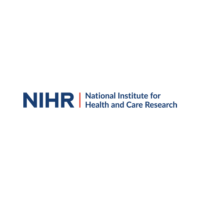Anxiety disorders
-

Enhanced late positive potential to conditioned threat cue during delayed extinction in anxious youth
Open Access paper from the JCPP – ‘This study compared threat learning among anxious and non-anxious youth using self-reports, peripheral psychophysiology measures, and event-related potentials’. Zohar Klein (pic) et al.
Read more -

Research Review: The multifaceted consequences and economic costs of child anxiety problems: A systematic review and meta-analysis
Open Access paper from the JCPP – ‘Over a quarter of people have an anxiety disorder at some point in their life, with many first experiencing difficulties during childhood or adolescence. Despite this, gaps still exist in the current evidence base of the multiple consequences of childhood anxiety problems and their costs.’ Jack Pollard (pic) et al.
Read more -

Network analysis of ecological momentary assessment identifies frustration as a central node in irritability
Paper from the JCPP – ‘Using a novel network analytic approach with smartphone-based ecological momentary assessment (EMA), we examined how irritability and other anxiety and mood symptoms were connected.’ Wan-Ling Tseng (pic) et al.
Read more -

Technology Matters: Increasing access to evidence-based treatment for child anxiety problems: online parent-led CBT for children identified via schools
Open Access paper from the CAMH journal 2023 Special Issue – “Anxiety problems are extremely common and have an early age of onset. We previously found, in a study in England, that fewer than 3% of children with an anxiety disorder identified in the community had accessed an evidence-based treatment (Cognitive Behavioural Therapy; CBT)”. Iheoma Green (pic) et al.
Read more -

Antidepressants for children and teenagers: what works?
Prescriptions for teenagers are rising. Research has found that the number of 12 to 17 year olds prescribed antidepressants more than doubled between 2005 and 2017. More recent information suggests that prescriptions have continued to increase, especially during the pandemic.
Read more -

Editorial Perspective: Are treatments for childhood mental disorders helpful in the long run? An overview of systematic reviews
Open Access paper from the JCPP – “Mental disorders may have severe consequences for individuals across their entire lifespan, especially when they start in childhood. Effective treatments (both psychosocial and pharmacological) exist for the short-term treatment of common mental disorders in young people”. Annelieke M. Roest (pic) et al.
Read more -

Preventing anxiety in the children of anxious parents – feasibility of a brief, online, group intervention for parents of one- to three-year-olds
Participants were recruited through primary and secondary care psychological services and social media. Emily Palmer, Matt Woolgar, Ben Carter, Sam Cartwright-Hatton, Fiona L. Challacombe (pic)
Read more -

Internet-delivered therapist-assisted cognitive therapy for adolescent social anxiety disorder (OSCA): a randomised controlled trial addressing preliminary efficacy and mechanisms of action
Open Access from the JCPP – “Forty-three youth (14–18 years) with SAD recruited through schools were randomly allocated to therapist-assisted Internet-delivered CT-SAD or waitlist for 14 week”. Eleanor Leigh (pic) and David M. Clark
Read more -

Technology-based CBT for youth anxiety: moderate short-term benefits but uncertainty remains
Blog by Douglas Badenoch of The Mental Elf Service on Dr. Matti Cervin et al paper ‘Technology-delivered cognitive-behavioral therapy for pediatric anxiety disorders: a meta-analysis of remission, posttreatment anxiety, and functioning’.
Read more -

ACEs – Adverse Childhood Experiences
Adverse Childhood Experiences (ACEs) are defined as situations that lead to an elevated risk of children and young people experiencing damaging impacts on their health and other social outcomes across the life course.
Read more